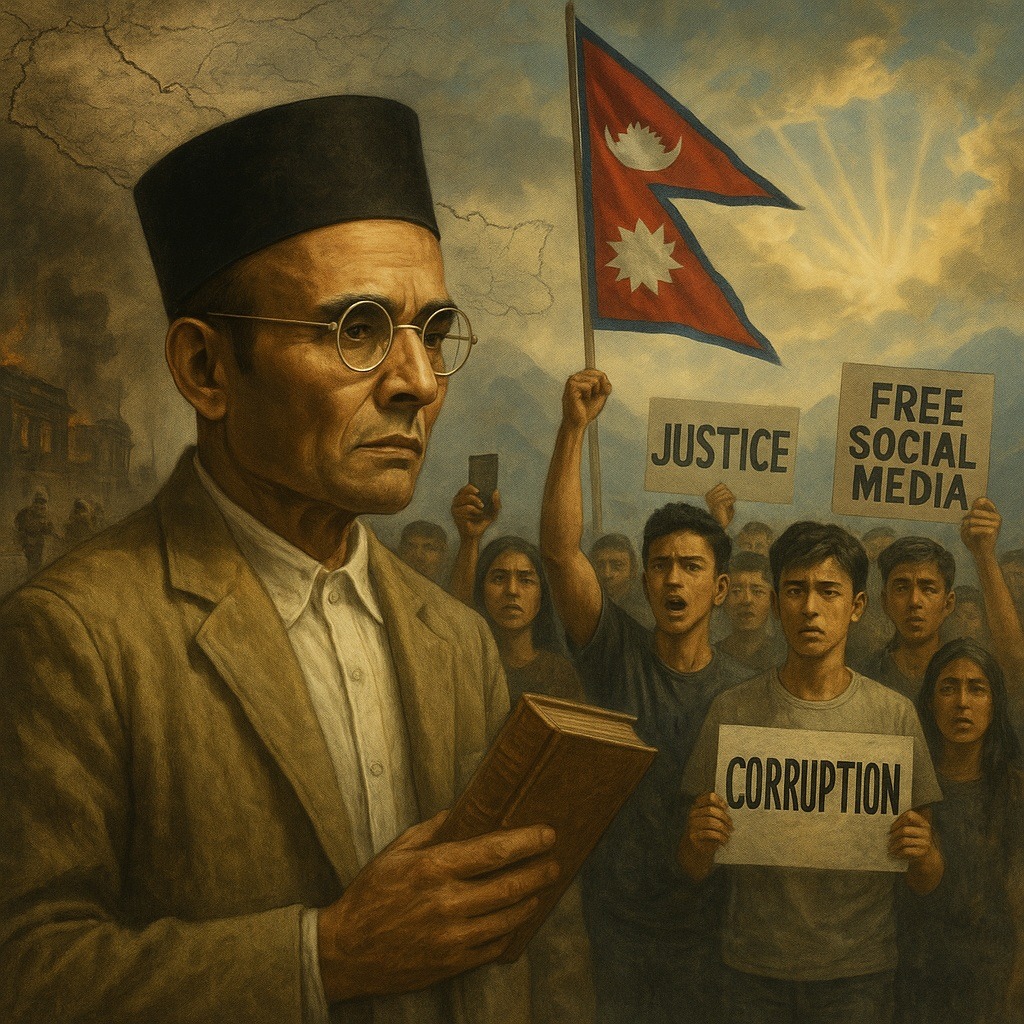Nepal has once again entered a moment of historic upheaval. What began as protests against a social media ban has exploded into a nationwide movement against corruption and political decay. The resignation of Prime Minister K. P. Sharma Oli and other members of his administration, the burning of government buildings, and the military’s presence on the streets mark one of the gravest political crises the country has faced in decades.
How might Vinayak Damodar (Veer) Savarkar have responded to these events? While Savarkar lived in another time, especially a different historical and political context, his core ideas offer an insightful approach to interpret Nepal’s turmoil today.
The Right to Resistance
For Savarkar, inspired by Bal Gangadhar (Lokmanya) Tilak, political obedience was never unconditional. His concept of “Responsive Resistance” held that cooperation with rulers was legitimate only as long as they served the people’s interests.
In that light, Savarkar would see the protests in Nepal as justified. The youth, confronted with corruption, censorship, and repression, had the “sacred right” to resist.
Nation Above Partisan Party Politics
Savarkar never placed blind loyalty in parties or leaders. To him, the nation itself was supreme. PM Oli’s resignation, therefore, would not be lamented as the downfall of one man but judged as the consequence of failing national duty.
Savarkar would most likely highlight: no party, no leader, and no ideology stands above the welfare of the nation.
The Role of the Military
A hard realist, Savarkar valued military strength as the bedrock of a secure state. Yet he consistently warned against unchecked military dominance. In his eyes, the army’s role was to defend, not to govern. As such, he would be cautious, watching the next steps of how far the military would take a role in the upcoming political decision-making and the forming of a new government.
In this context, he would likely welcome the army’s role in restoring order but caution Nepal: a purely military interim rule risks silencing the people’s will and undermining democracy — “The sword can guard, but it must never replace the ballot.”
Youth and Revolution
Savarkar revered the engagement of youth as a strength of national regeneration. He would hail Nepal’s Gen Z protesters as the engine of progress and moral reawakening.
But he would also remind them that courage alone is not enough: it must be paired with vision, organization, discipline, and programmatic-rational action to truly remake a nation.
Warning Against Anarchy
Although a revolutionary, Savarkar was no anarchist. He believed that chaos weakens a nation, leaving it vulnerable to external powers. He would likely condemn the arson and disorder, insisting that resistance must be strategic, constructive, and nation-building. He would remind the protesters that social and political agitation must aim not at destroying a system, but at building anew.
Final Thoughts
Last but not least, Savarkar would be worried that the current political instability would make Nepal vulnerable to external influence. For Savarkar, a weak Nepal is also a danger to India’s own security.
In the end, Savarkar’s hypothetical commentary on Nepal would blend sympathy for the people’s resistance with a stern warning: revolution must never descend into chaos, and the nation must always rise above factional politics.


Leave a Reply